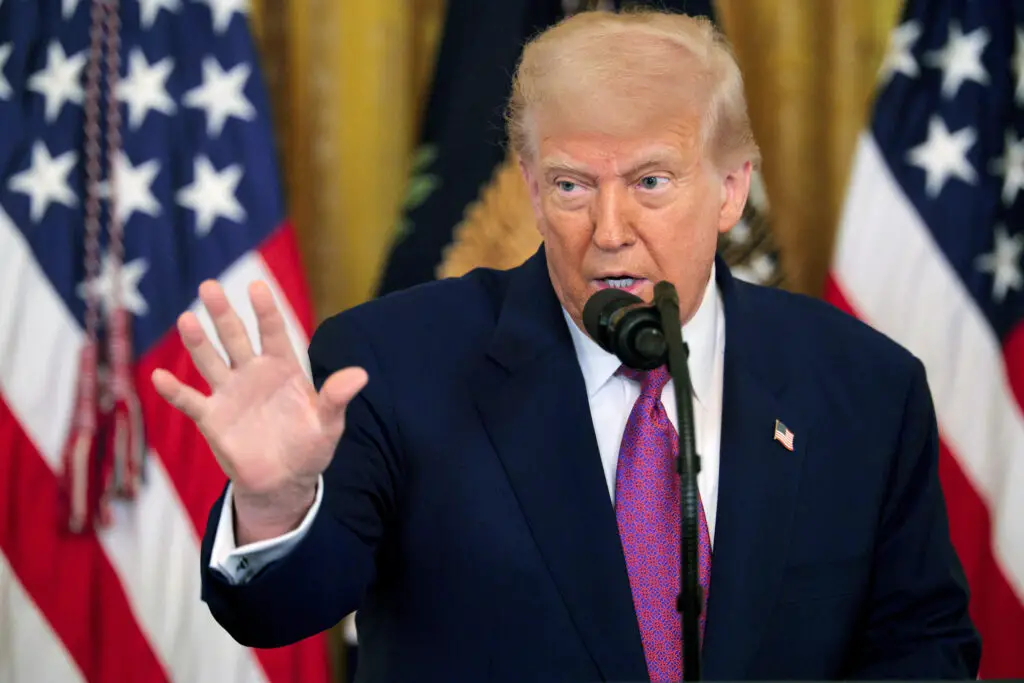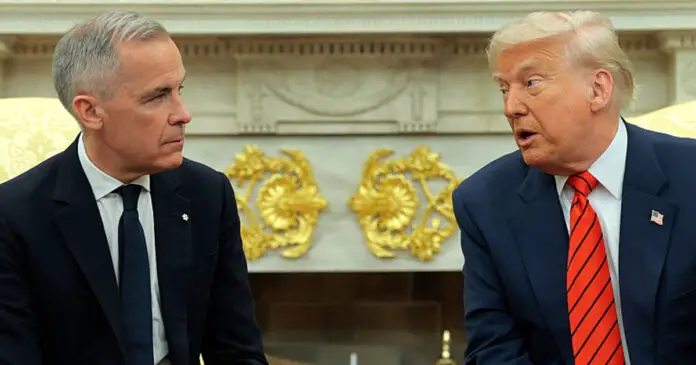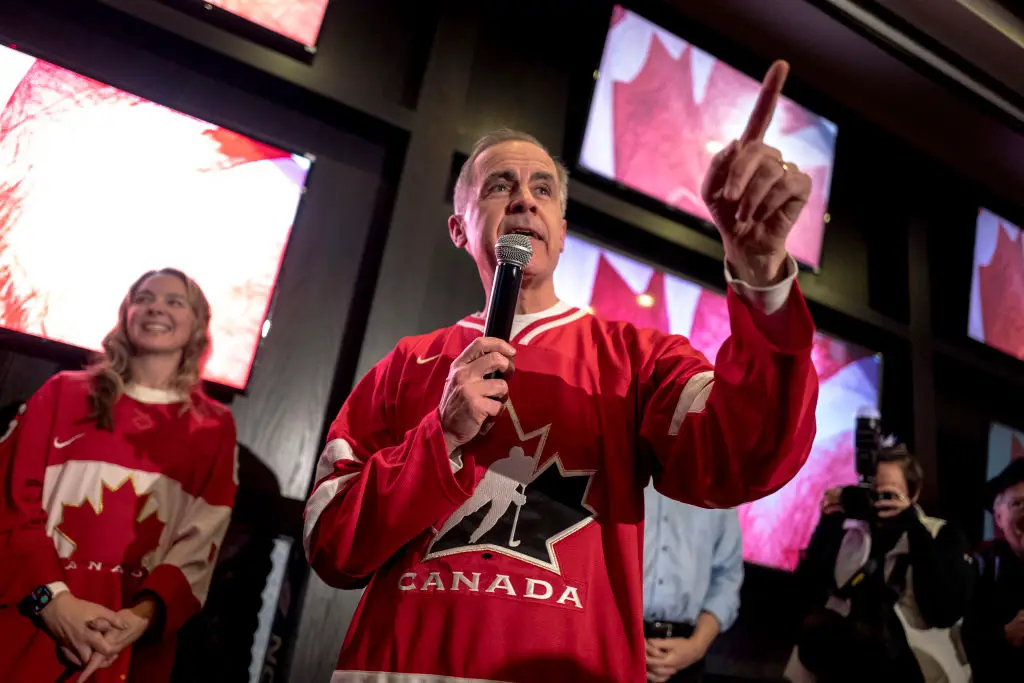OTTAWA/WASHINGTON D.C. – A potential trade war between two of the world’s closest allies erupted and then seemingly diffused in a whirlwind 72 hours, leaving economists scrambling and political analysts buzzing. At the center of the storm: a proposed Canadian digital services tax (DST) and the explosive reaction from U.S. President Donald Trump, who declared it a “blatant attack” on American businesses.
The drama unfolded with dizzying speed. Canada’s decision to levy a 3% DST on tech giants like Amazon, Meta, Google, Uber, and Airbnb, retroactively impacting profits from 2022 and potentially costing U.S. firms up to $2 billion, was set to take effect this Monday. But just as the clock ticked down to the deadline, President Trump unleashed a fiery tirade on Truth Social, threatening to terminate all trade discussions and impose new tariffs on Canadian goods within a week.

“We have just been informed that Canada, a very difficult Country to TRADE with, including the fact that they have charged our Farmers as much as 400% Tariffs, for years, on Dairy Products, has just announced that they are putting a Digital Services Tax on our American Technology Companies, which is a direct and blatant attack on our Country,” Trump thundered. His message left no room for doubt: “Based on this egregious Tax, we are hereby terminating ALL discussions on Trade with Canada, effective immediately.”
The stakes were astronomical. Last year, trade between the U.S. and Canada exceeded a staggering $762 billion. A full-blown trade freeze with America’s top trading partner would have sent shockwaves through both economies.
Canadian Prime Minister Mark Carney initially responded with a measured tone, stating, “We’ll continue to conduct these complex negotiations in the best interests of Canadians.” However, behind the scenes, the pressure cooker was at its peak.

Then, in a stunning Sunday night reversal – just one day before the first tax payments were due – Canada announced it was rescinding the digital services tax. Prime Minister Carney confirmed the move was to allow negotiations with the U.S. to “make vital progress” towards a July 21, 2025 timeline set at this month’s G7 Leaders’ Summit in Kananaskis.
Canadian Minister of Finance and National Revenue Francois-Philippe Champagne echoed the sentiment, emphasizing that dropping the DST would “reinforce our work to create jobs and build prosperity for all Canadians” within a new economic and security relationship with the U.S.
While Canada framed the decision as a strategic move to facilitate broader trade talks, many observers are calling it a clear victory for Trump’s aggressive “America First” stance. The President didn’t shy away from claiming credit, using the moment to blast European nations for considering similar digital taxes. “They’re nasty people, and I don’t want them affecting U.S. companies. I don’t want that — if anybody’s going to affect a U.S. company, I want it to be us, and if they’re going to have to pay a penalty or fine, let it be to us.”

The rapid capitulation from Ottawa underscores the immense leverage the U.S. holds in trade negotiations, particularly under the Trump administration. While the immediate crisis has been averted, the episode highlights the fragility of international trade relations and the potential for a single policy decision to ignite a fierce cross-border battle.
The question now remains: will this newfound “peace” hold, or is this just the first skirmish in a much longer, more unpredictable global trade saga? Only time, and President Trump’s Truth Social feed, will tell.

